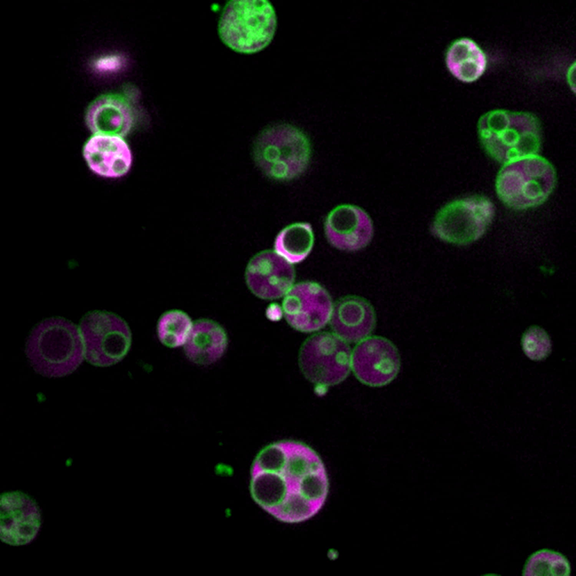A central task of eukaryotic cells is to ensure that various proteins synthesized in the cytosol reach their proper destinations, which can include subcellular membrane-bound compartments known as organelles. Research in the Bartel lab is uncovering the mechanisms by which cells assemble and destroy one such organelle, the peroxisome. Peroxisomes sequester essential but often dangerous metabolic reactions, thereby accelerating metabolism while protecting the rest of the cell from harmful byproducts. Defects in this organelle in humans underlie the peroxisome biogenesis disorders, which are generally fatal in infancy or childhood.
The Bartel lab uses genetic, genomic, cell biological, and biochemical approaches to decipher peroxisome biology in the reference plant Arabidopsis thaliana; the novel peroxisomal functions and facile genetics of this organism allow straightforward perturbation and enhancement of peroxisomal processes in an intact multicellular organism. Moreover, the relatively large size of plant peroxisomes (compared to yeast and mammalian peroxisomes) offers unique opportunities to decipher peroxisome biogenesis and membrane complexity via live-cell imaging. The Bartel lab is exploiting unique aspects of plant peroxisomes to advance mechanistic hypotheses to expand and refine our understanding of these essential organelles.


